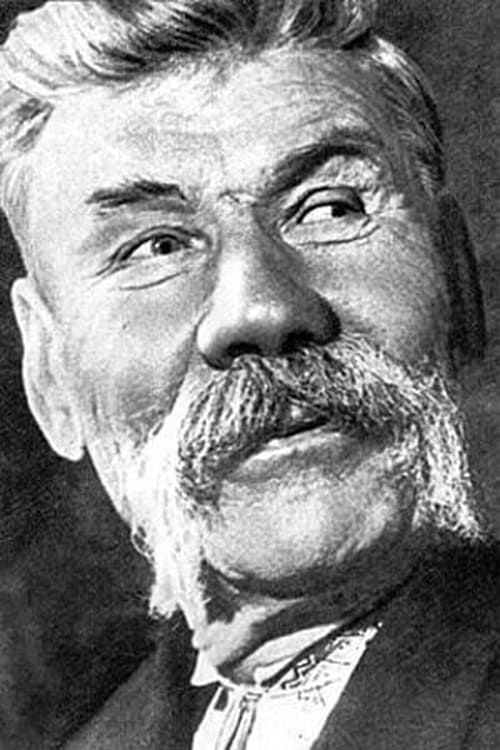Natalka Poltavka (1936)
Genre : Music, Romance, Drama
Runtime : 1H 11M
Director : Ivan Kavaleridze
Synopsis
This film is the first adaptation of an operetta written by Ukrainian composer Mykola Lysenko. It follows the trials and tribulations of Natalka and Peter (Petro). The sweethearts planned to get married; however, Natalka's father does not approve of the marriage because Petro was not affluent enough to keep Natalka in the manner he thought that she should be kept. Petro goes off to earn the required fortune.
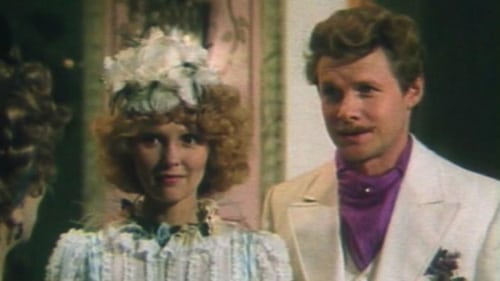
Silva Varescu, a self-sufficient and professionally successful cabaret performer from Budapest, is about to embark on a tour of America. Three of her aristocratic admirers, named Edwin, Feri and Boni, prefer her to stay. Edwin, unaware that his parents have already arranged a marriage for him back home in Vienna, orders a notary to prepare a promissory note of his expected marriage to Silva within ten weeks.
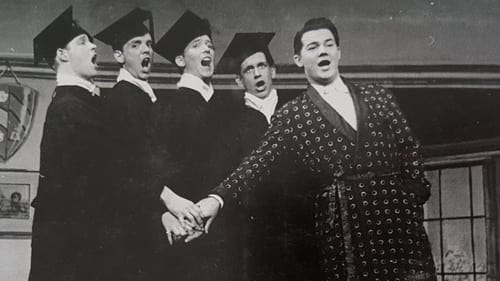
Live television version of the classic musical.

A newspaper reporter and the daughter of an immigrant maintenance man help expose political corruption in New York City.

French General Birabeau has been sent to Morocco to root out and destroy the Riffs, a band of Arab rebels, who threaten the safety of the French outpost in the Moroccan desert. Their dashing, daredevil leader is the mysterious "Red Shadow". Margot Bonvalet, a lovely, sassy French girl, is soon to be married at the fort to Birabeau's right-hand man, Captain Fontaine. Birabeau's son Pierre, in reality the Red Shadow, loves Margot, but pretends to be a milksop to preserve his secret identity. Margot tells Pierre that she secretly yearns to be swept into the arms of some bold, dashing sheik, perhaps even the Red Shadow himself. Pierre, as the Red Shadow, kidnaps Margot and declares his love for her.

Young Austrian Archduke Paul "Gustl" Gustave is in an arranged engagement but his uncle, the emperor, decides to let Gustl carry on a fling with ballet dancer Lisl Gluck.

This outdoor performance of Carl Zeller's celebrated operetta was staged at the Seefestspiele Mörbisch in 1998. Seefestspiele Mörbisch is an operetta festival held annually at Mörbisch am See in Austria. In the story, Adam, a handsome bird-seller from the County of Tyrol, finds himself in the Rhineland, where he and a village postmistress become entangled in various romantic intrigues and misunderstanding at the prince's court.

In this three-act operetta by Hungarian composer Emmerich Kálmán, a dashing and mysterious circus performer is hired by a disappointed suitor of Princess Fedora Palinska to pose as a nobleman and marry her. This 1969 performance was produced for West German television.

Ottilie Van Zandt is forced to wed her cousin, despite her love for Richard Wayne, the gardener's son. Richard leaves, vowing to return a wealthy man and eligible suitor for her. He returns to find she has already married and, in turn, marries another girl on impulse. Two generations later, the grandchildren of Ottilie and Richard, who both have inherited their names as well, meet and develop a close friendship that culminates in the romance that their grandparents began but could not consummate years before.

Out of unlikely circumstances an underground ticket vending girl and a mail pilot fall in love.

In the Temesvar Province, a landowner returned from exile marries a gypsy girl who is revealed to be the daughter of a Turkish Pasha and the rightful owner of a hidden treasure. Next to "Die Fledermaus", DER ZIGEUNERBARON is Johann Strauss’s most popular operetta. The libretto gave Strauss the chance to revel in such contrasting musical forms as the Csárdás and the Viennese waltz. The style of the lied forms and ensembles is so original and finely balanced that the "Gypsy Baron" can truly be called a comic opera. Among the leading names of the stellar cast in this exuberant 1975 film of the operetta are Wolfgang Brendel, Ivan Rebroff, Janet Perry, Ellen Shade, Martha Mödl and, in the role that launched his career, Siegfried Jerusalem as Sándor Barinkay.

Performances from Pamela Coburn, Brigitte Fassbaender, Janet Perry, Eberhard Wachter, the Choir und Ballet der Bayerischen Staatsoper, and the Bayerisches Staatsorchester. Rosalinde, wife of Eisenstein, is having an affair with Alfred. Eisenstein is due to begin a prison sentence the next morning, and the prison governor, Frank, is expected to collect him at any moment. However, Eisenstein allows himself to be talked into attending a fancy dress ball by Dr Falke, and when Frank arrives to find Alfred with Rosalinde, he assumes him to be Eisenstein and carts him off to prison.

In 1890, Gus Sascher joins the Austrian Army and romances the impoverished girl Elsa Hofner. Elsa instead marries the wealthier officer Franz von Renner, in an attempt at social climbing.
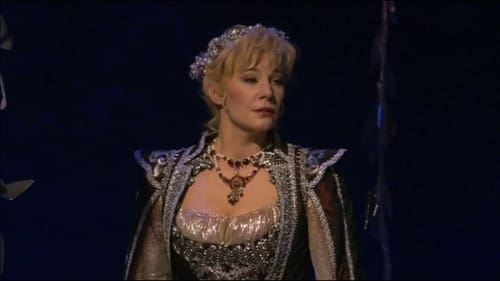
Zurich Opera House production of Franz Léhar's operetta, with Dagmar Schellenberger, Rodney Gilfry, and Ute Gfrerer in lead roles. Baron Zeta is desperate that the fabulously wealthy widow Hanna Glavari marry a Pontevedrian man so that her fortune remains in the country. He attempts to match her and his handsome attaché, Danilo. It turns out that Danilo and Hanna had had a love affair in years past. Nevertheless, Danilo now refuses to love her because he doesn't want to appear like he is only interested in her money...

Johan Strauss Eine Nacht in Venedig (1883) together with Die Fledermaus and Die Zigeunerbaron, has long been among the three most popular of the more than a dozen operettas composed by the 19th c. Waltz King. This Rudolf Bibl conducted performance was recorded live during the Seefestspiele Moerbisch Austria Festival in 1999 and features Marc Clear, Gideon Singer, Evelyn Schörkhuber , Ingrid Habermann, and Anton Steingruber.
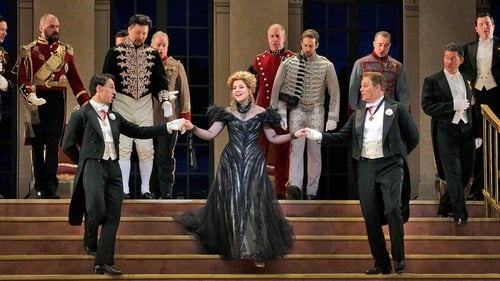
Renée Fleming lights up the Met stage as Hanna Glawari, the fabulously wealthy widow of the title in Lehár’s beloved operetta, set in Paris and seen in a glittering production directed and choreographed by Broadway’s Susan Stroman. Nathan Gunn is Danilo, Hanna’s former flame, who is supposed to woo and marry her in order to keep her fortune in their home country of Pontevedro. Kelli O’Hara sings Valencienne, the flirtatious young wife of the Pontevedrian ambassador in Paris, Baron Zeta, played by Thomas Allen, and Alek Shrader is her suitor, Camille. Andrew Davis conducts the waltz-rich score, and the new English translation is by Jeremy Sams.

Ballet for TV by Flemming Flindt and Eugène Ionesco with music by Thomas Koppel played by Savage Rose. First broadcast in 1971. The ballet was first performed by the Danish Royal Ballet, first as a TV show on the Danish public service channel called DR in 1971, then as a performance at the Danish Royal Theatre in 1972. The main part was danced by Vivi Flindt, and Flemming Flindt also starred. The ballet caused quite a stir, partly because of its spectacular nude dancing, but also the catchy music, published both complete on vinyl (which double-lp) and in abbreviated form on vinyl and CD.

"Sailors" - A musical comedy about Kalle Svensson, a sergeant in the navy, and his loved one Nanette Raquette who works as a gymnastics teacher.

Kálmán Imre's beloved operetta comes to the screen in this comedy of music, marriage and class set in Budapest and Vienna before the outbreak of the First World War, recorded at the Budapest Opera in 1963.
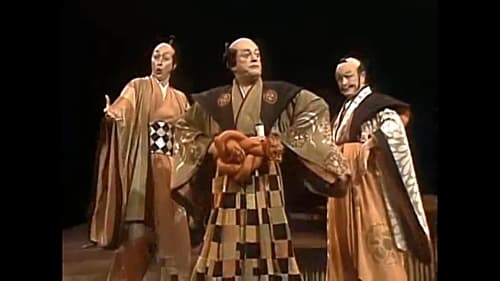
In a mythical Japan, Ko-Ko, a cheap tailor, has been appointed Lord High Executioner and must find someone to execute before the arrival of the ruling Mikado. He lights upon Nanki-Poo, a strolling minstrel who loves the beautiful Yum-Yum. But Yum-Yum is also loved by Ko-Ko, and Nanki-Poo, seeing no hope for his love, considers suicide. Ko-Ko offers to solve both their problems by executing Nanki-Poo, and an agreement is reached whereby Ko-Ko will allow Nanki-Poo to marry Yum-Yum for one month, at the end of which Nanki-Poo will be executed, in time for the arrival of the Mikado. But what Ko-Ko doesn't know is that Nanki-Poo is the son of the Mikado and has run away to avoid a betrothal to an old harridan named Katisha. The arrival of the Mikado brings all the threads of the tale together. This is the Stratford Festival of Canada, directed by Brian Macdonald. This is a filmed version of a stage performance, and the sets are beautifully spare and economical.


